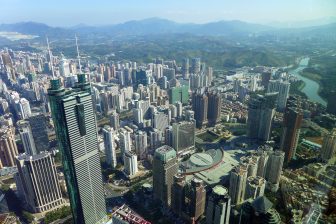
Shaping tomorrow’s cities – the role of youth in urban design
In the bustling corridors of urban planning and development, a new wave of voices is rising to the forefront – those of young people.
As cities worldwide grapple with the complexities of rapid urbanisation, climate change, and social equity, the importance of involving youth in designing the cities of tomorrow has never been more evident. From revitalising public spaces to advocating for sustainable transportation solutions, young urbanists are spearheading initiatives that are reshaping the urban landscape and fostering more inclusive, resilient communities.
In recent years, cities across the globe have increasingly recognised the value of engaging young people in the urban design process. Gone are the days when decisions about city development were made behind closed doors by a select few. Today, municipal governments, community organisations, and urban planning firms are actively seeking the input of youth to ensure that urban spaces reflect the needs, aspirations, and values of all residents.
One of the primary reasons for involving young people in urban design is their unique perspective and innovative thinking. Growing up in the digital age, today’s youth have a deep understanding of technology and its potential to transform urban living. From app-based solutions for public transit to virtual reality simulations of future cityscapes, young urban designers are harnessing cutting-edge tools to reimagine the built environment in ways that are both sustainable and user-friendly.
‘Youth-led ideas are pushing the boundaries’
Moreover, young people bring a fresh outlook and a willingness to challenge conventional wisdom, which can lead to breakthrough ideas and novel approaches to urban problems. Whether it’s advocating for car-free streets to reduce carbon emissions or promoting mixed-use development to foster vibrant neighbourhoods, youth-led initiatives are pushing the boundaries of traditional urban planning and paving the way for more inclusive and equitable cities.
Another key aspect of involving young people in urban design is the promotion of civic engagement and community empowerment. By actively participating in the planning process, young people develop a sense of ownership and attachment to their neighbourhoods, fostering a deeper connection to their local communities. This sense of belonging not only strengthens social cohesion but also encourages young people to take an active role in shaping the future of their cities.
Furthermore, engaging youth in urban design helps to address intergenerational equity and ensure that the needs of future generations are taken into account. As cities continue to grow and evolve, decisions made today will have far-reaching consequences for years to come.
‘City leaders can gain valuable insights’
By involving young people in the planning process, city leaders can gain valuable insights into the preferences and priorities of tomorrow’s residents, thus ensuring that urban development is sustainable, inclusive, and future-proof.
In cities around the world, initiatives aimed at involving young people in urban design are already bearing fruit. From youth-led design workshops to student-led research projects, young urbanists are making their voices heard and driving positive change in their communities. By harnessing the creativity, energy, and passion of youth, cities can unlock new possibilities and build more liveable, resilient, and equitable urban environments for all.
The importance, therefore, of involving young people in designing cities cannot be overstated. From their fresh perspectives and innovative ideas to their commitment to social justice and sustainability, young urbanists are invaluable assets in the quest to build better cities for all. As we look to the future, let us embrace the wisdom of youth and empower the next generation of urban designers to shape the world they will inherit.




